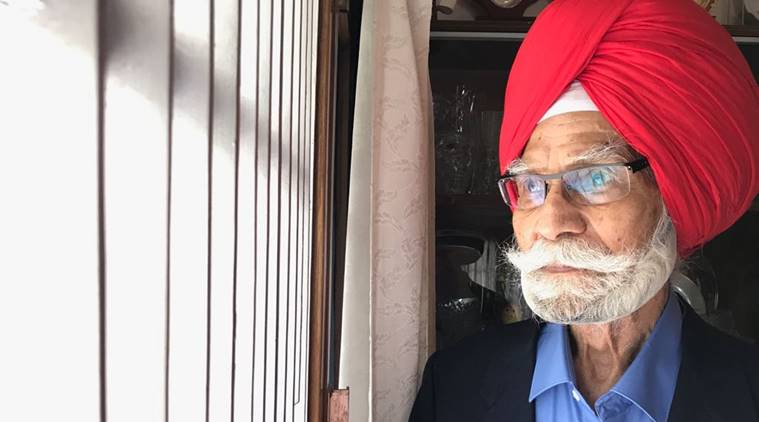
The Indian Express
Hockey legend Balbir Singh Sr passes away at 96
Balbir Singh Sr's record for most goals scored by an individual in the men's hockey final at the Olympics still remains unbeaten.
by Nitin SharmaTriple Olympic gold medallist Balbir Singh Senior breathed his last at a Mohali hospital on Monday morning. He was 96. Singh, who was member of the 1948 London Olympics gold medal-winning Indian hockey team, apart from being the vice-captain of the 1952 victorious side and skipper of the 1956 champions, had been admitted to the hospital earlier this month on May 8 due to pneumonia and was on ventilator support. He passed away at 6:17 am on Monday.
Singh, whose full name was Balbir Singh Dosanjh but was called Senior to differentiate from the other five Balbirs who played for India in later years, was also the oldest surviving Olympic medallist from India, a record which now passes on to his 1948 London Olympics team-mate Keshav Dutt.
Born on December 31, 1923 to Sardar Dalip Singh and Karam Kaur at his maternal village of Haripur Khalsa, Singh went on to become one of the best centre forwards India has produced. He had started his career as a goalkeeper with his school team at Moga before playing as a defender and later a centre forward. As a five-year-old, Singh was given a hockey stick by his freedom fighter father and he recalled it fondly in his autobiography “The Golden Hat-trick”.
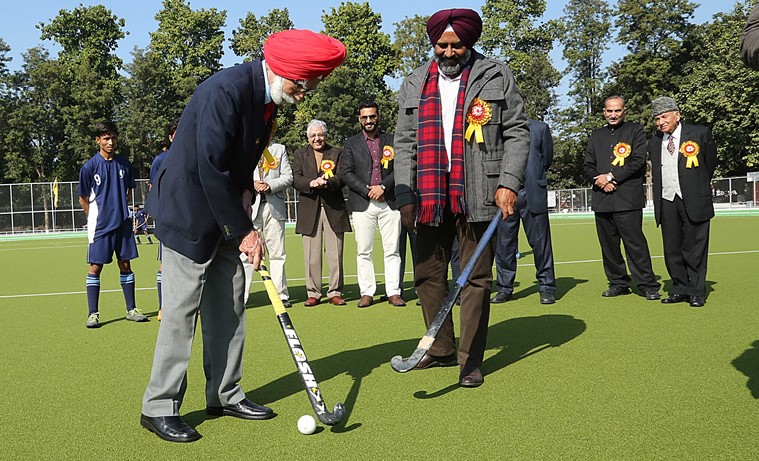
“I was born in a village. After a few years, my parents brought me to a small town. There I saw her for the first time. I liked her, respected her, loved her and worshiped her. She became my Goddess, my first love and my darling. She took me along to new pastures and new places in different countries all over the world. Wherever we went, we were accorded royal receptions. She taught me the qualities of sportsmanship. Her love for me was eternal. Our love blossomed in London. We married in Helsinki and honeymooned in Melbourne. After a period of 11 long years, my fairy of the Heavens returned to me as fresh and charming as ever. This time she took me to Kuala Lumpur, and we were again on top of the world. She vanished again, but with a promise that she would return. I am waiting for her – my hockey fairy. She must come,” Singh had written.
He initially played for Sikh National College, Lahore in the early 1940s before making the switch to Khalsa College, Amritsar in 1942 on the insistence of long-time coach Harbail Singh. He would captain Panjab University to three All India Inter-university titles in 1943, 1944 and 1945 before playing for undivided Punjab in the national championships of 1947 before partition.
Singh was not among the original list of players for the training camp for 1948 Olympics but was later included in the Indian squad of 20 players. He was one of four centre forwards in the group, the others being Regie Rodrigues, Gerald Glacken and A Shakur. Singh did not play the first match at London before scoring six goals, including a hat-trick, against Argentina in India’s 9-1 win in the second game. But the Punjab player did not figure in the rest of the group matches and was not included in the quarterfinal against Spain and semifinal against the Netherlands either.
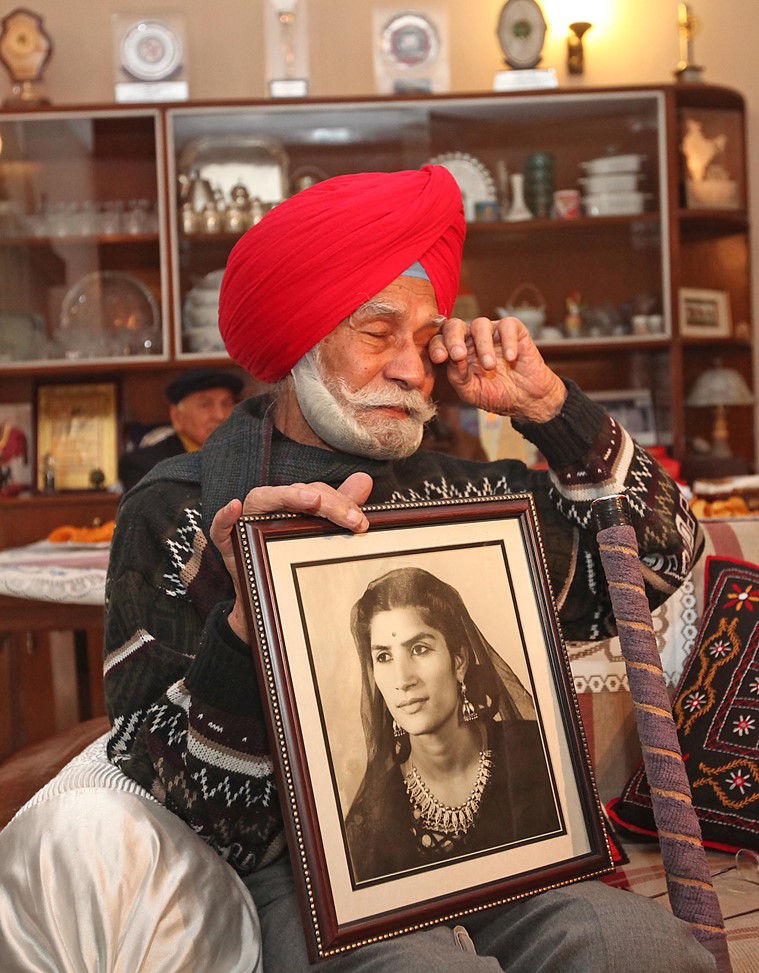
However, in the final, Singh scored India’s first goal in the seventh minute against Great Britain in front of the 25,000 crowd at Wembley Stadium before the second in the 15th minute. Tarlochan Bawa and Pat Jensen scored the other two goals as India won the final 4-0, and it was the first time that the Indian flag was unfurled in a sporting event in England.
“Seeing the Tri-colour unfurl at the Wembley Stadium in England was like flying on the clouds of joy. I can never forget the moment we saw the Indian flag flying in place of the Union Jack and that remains the biggest memory of my sporting life,” Singh had told The Indian Express in 2018.
He was the vice-captain of the Indian team led by KD Singh Babu at the 1952 Helsinki Olympics. The centre forward scored three goals against Great Britain in the semifinal before scoring five out of the six goals against the Netherlands in the final, a record which stands till now.
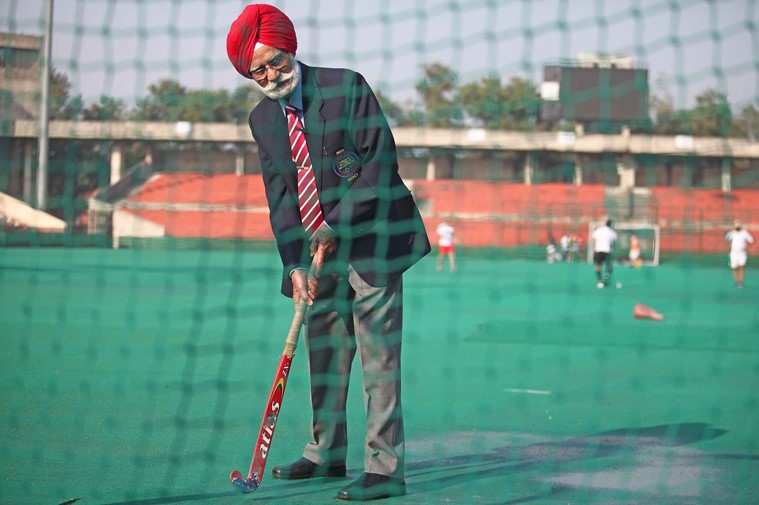
At the 1956 Melbourne Olympics, Singh, now the captain of the team, scored five goals against Afghanistan in India’s opening match before being injured. He played in the semifinal against Germany and final against Pakistan with an injured right hand as India won their sixth Olympic gold medal.
Post his playing days, which saw him winning six national titles for Punjab Police, Singh was the chief coach-manager of the Indian team starting 1961 and donned the chief coach’s role in eight tournaments till 1982. His long stint included the role of chief coach at the 1975 Hockey World Cup, which remains India’s only triumph at the event.
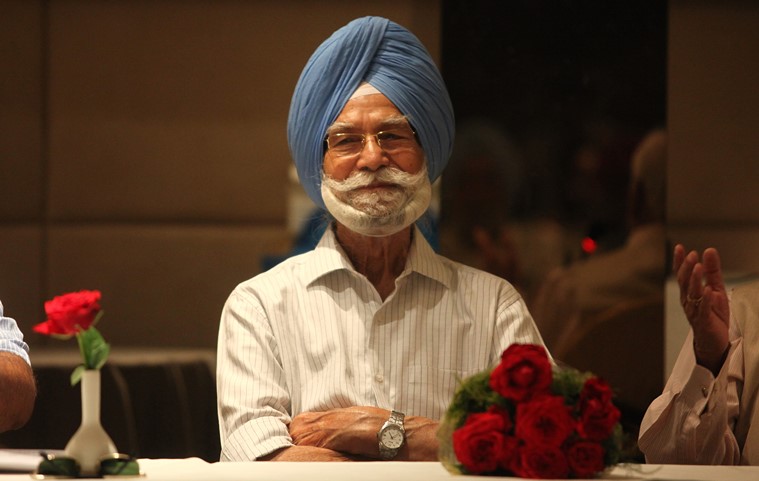
The Indian team with Singh as chief coach in eight tournaments returned with a podium finish every time, including a gold medal at the 1966 Asian Games, silver at 1970 Asian Games, bronze at the 1971 World Cup, bronze at 1982 Champions Trophy and silver at 1982 Asian Games.
Singh, who stayed in Chandigarh at his daughter Sushbir Bhomia’s home, would also spend time in Canada, where his three sons lived.